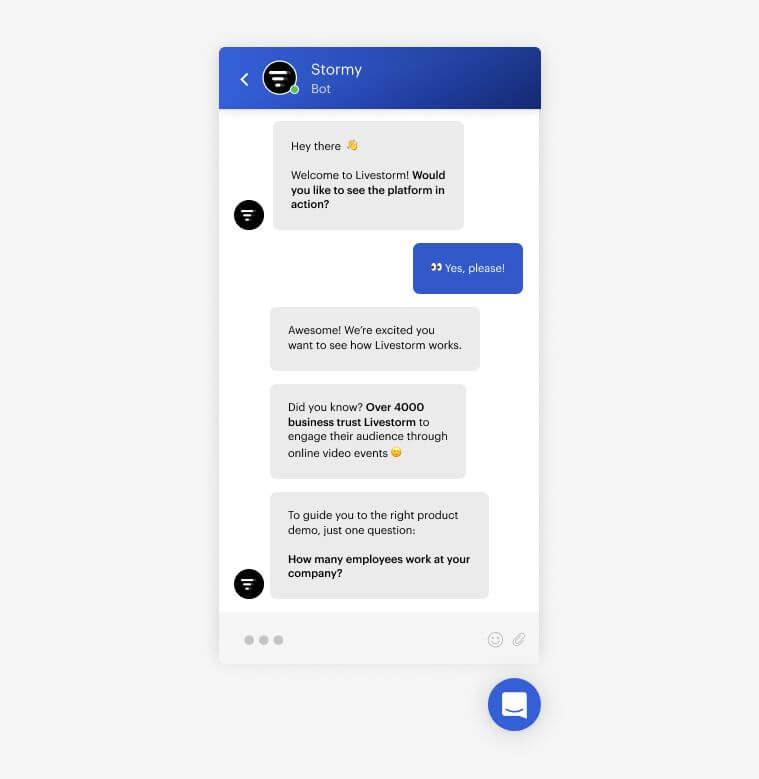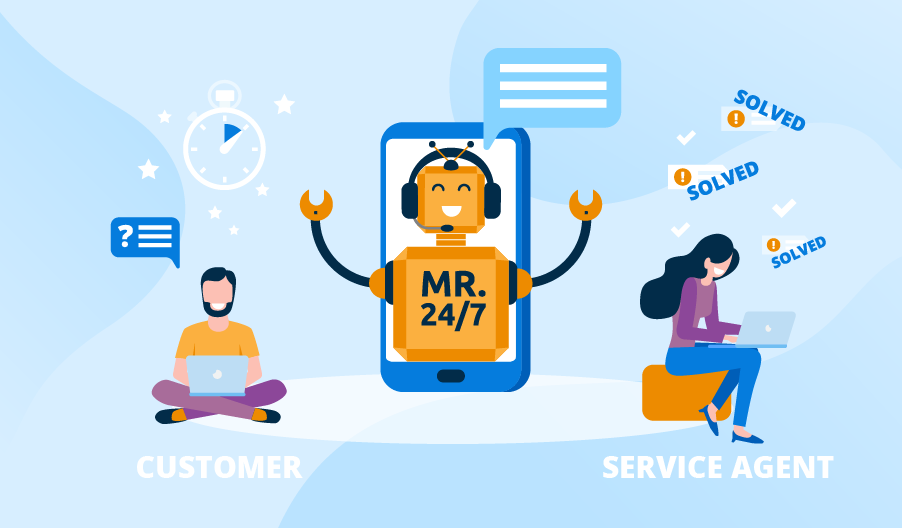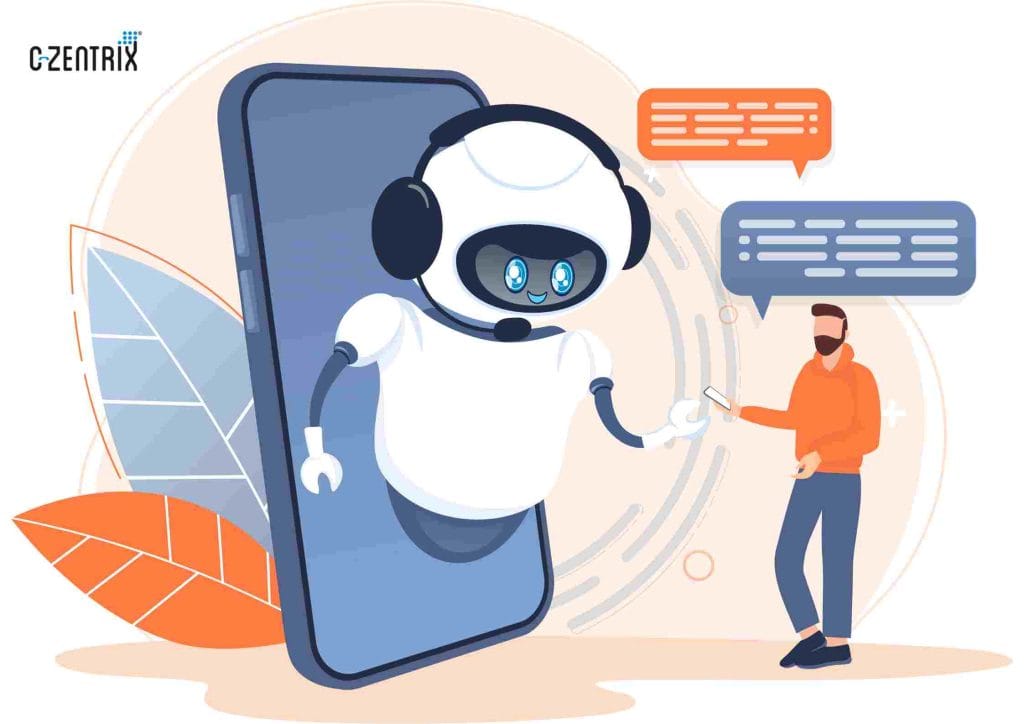Discover how chatbots for customer service can enhance support, reduce wait times, and cut costs while keeping customers happy!
Businesses today need quick and efficient ways to assist customers. Chatbots offer a solution that can respond 24/7. This technology saves time and reduces workload for human agents. Plus, customers get immediate answers, enhancing their experience. Chatbots can handle multiple inquiries at once, ensuring no customer waits too long.
They also gather data to improve services over time. Whether for answering FAQs or guiding users through processes, chatbots are invaluable. By integrating chatbots, companies can improve their customer service and satisfaction. Ready to explore how chatbots can benefit your business? Let’s dive in.
Benefits Of Chatbots
Chatbots have become an essential tool for customer service. They provide numerous benefits that can transform the way businesses interact with their customers. Let’s delve into some of the key advantages, including 24/7 availability and cost efficiency.
24/7 Availability
One of the significant benefits of chatbots is their round-the-clock availability. Unlike human agents, chatbots don’t need sleep or breaks. They can assist your customers at any time of the day or night.
This constant availability means your customers can get help whenever they need it, leading to higher satisfaction. Imagine a customer needing support late at night; with a chatbot, they don’t have to wait until the next business day.
Moreover, chatbots can handle multiple queries simultaneously. This means no more waiting in long queues for your customers. Immediate responses can significantly enhance their experience.
Cost Efficiency
Another critical advantage of chatbots is their cost efficiency. Hiring and training customer service representatives can be expensive. Chatbots, on the other hand, require a one-time setup cost and minimal maintenance.
Think about the savings. With chatbots handling routine queries, you can reduce the number of live agents. This allows you to allocate your resources more effectively, focusing on more complex issues that need human intervention.
Additionally, chatbots can help reduce operational costs. They can handle repetitive tasks, freeing up your human agents to focus on more valuable activities. This not only reduces costs but also improves overall productivity.
Have you ever had an experience where a chatbot resolved your issue quickly? Or perhaps you’ve saved costs in your business by implementing chatbots? Share your thoughts in the comments below!

Credit: www.intercom.com
Enhancing Customer Experience
Chatbots offer quick and efficient solutions, enhancing customer service experiences. They provide 24/7 support, answering questions and resolving issues promptly. Businesses can improve satisfaction and loyalty through better accessibility and responsiveness.
Enhancing Customer Experience
In the digital age, customer service is evolving rapidly. One powerful tool enhancing customer experiences is the chatbot. Chatbots offer quick, efficient, and personalized service, improving overall satisfaction. They streamline interactions and provide immediate support.
Personalized Interactions
Chatbots can tailor responses based on customer data. They remember your previous interactions and preferences. This makes every chat feel unique and relevant.
Imagine chatting with a bot that knows your favorite products. It suggests items you might like, saving you time. Personalized service makes you feel valued and understood.
Quick Response Times
Speed is crucial in customer service. Chatbots respond instantly. No more waiting on hold or for an email reply.
Immediate answers mean problems get solved faster. This boosts your satisfaction and trust in the service. Faster responses lead to happier customers.
Ever needed help late at night? Chatbots are available 24/7. They provide support whenever you need it. This round-the-clock service is a game-changer for many.
Have you ever wondered how much time you could save with quick, personalized responses? Chatbots are here to enhance your customer service experience, one chat at a time.
Implementation Strategies
Implementing chatbots for customer service can greatly enhance user experience. To ensure success, focus on key strategies. These include choosing the right platform and integrating it with existing systems.
Choosing The Right Platform
Selecting the right chatbot platform is crucial. Consider ease of use, scalability, and customization options. Make sure the platform supports multiple languages. User-friendly interfaces are important for non-technical staff.
Evaluate the support and training offered. Reliable support can make a big difference. Check reviews and case studies to see real-world applications. Choose a platform that aligns with your business goals.
Integration With Existing Systems
Integrating chatbots with existing systems ensures seamless operations. Compatibility with CRM and other tools is vital. This integration helps maintain data consistency. Automated workflows can save time and reduce errors.
Assess the ease of integration provided by the platform. Look for APIs and plugins that simplify the process. Ensure the chatbot can access and update customer data in real-time. Proper integration can improve customer satisfaction.

Credit: www.zendesk.com
Challenges And Solutions
Chatbots have revolutionized customer service, making it faster and more efficient. However, they do come with their own set of challenges. Let’s dive into some common obstacles and practical solutions to make your chatbot as effective as possible.
Handling Complex Queries
One of the biggest challenges chatbots face is dealing with complex queries. Simple questions like “What are your business hours?” are easy to handle. But what about more detailed questions that require nuanced answers?
To solve this, consider implementing a hybrid system. A chatbot can handle straightforward queries, while more complicated issues are escalated to human agents. This ensures that your customers receive accurate and thorough responses.
Another strategy is to continuously train your chatbot. Use machine learning to analyze previous interactions and improve its responses. The more data you feed it, the better it will become at handling complex queries.
Maintaining Human Touch
Another challenge is maintaining the human touch in customer service. Customers appreciate the efficiency of chatbots but still crave human interaction.
One way to tackle this is to program your chatbot with a friendly tone. Use casual language and add a touch of humor where appropriate. This makes interactions feel less robotic and more human.
Additionally, ensure that your chatbot can seamlessly transfer conversations to human agents when necessary. This way, your customers won’t feel abandoned and will appreciate the personalized touch.
Have you ever felt frustrated by a robotic response? Adding empathy and understanding can make a world of difference. Encourage your chatbot to acknowledge customer emotions and respond appropriately.
What challenges have you faced with chatbots in customer service? Share your thoughts and solutions in the comments below!
Case Studies
Case studies provide real-world insights into how chatbots improve customer service. They highlight successful implementations and lessons learned by companies. This section explores notable examples and key takeaways.
Successful Examples
Many companies have successfully implemented chatbots. One example is a major airline. They use chatbots to handle flight inquiries and bookings. This has reduced their customer service costs. It also improved response times.
An online retailer also saw success with chatbots. They use them for order tracking and product recommendations. Customer satisfaction increased. The chatbots provided instant responses to common queries.
Lessons Learned
From these examples, we learn the importance of clear communication. Chatbots must understand and respond accurately to customer needs. This requires good programming and continuous updates.
Another lesson is the value of human oversight. Chatbots should handle routine tasks. For complex issues, human agents must intervene. This ensures customers receive accurate and personalized assistance.
Finally, integrating chatbots with other systems is crucial. This allows for seamless information sharing. It leads to more efficient and effective customer service.
Future Of Chatbots
The future of chatbots in customer service is incredibly promising. As technology evolves, chatbots are becoming smarter and more efficient. They are now capable of handling complex tasks, making customer service faster and more accurate. This evolution is driven by advancements in artificial intelligence and the expanding capabilities of these digital assistants.
Ai Advancements
Artificial intelligence is at the heart of chatbot development. AI algorithms are improving rapidly. This allows chatbots to understand and process natural language better. They can now recognize patterns and predict customer needs. Machine learning enables chatbots to learn from interactions. This results in more personalized responses. AI advancements also contribute to better sentiment analysis. Chatbots can gauge customer emotions and respond accordingly. These improvements enhance the overall customer experience.
Expanding Capabilities
Chatbots are expanding their capabilities beyond simple tasks. They can now manage bookings, process payments, and even troubleshoot technical issues. Integration with other systems allows chatbots to access customer data. This leads to more informed interactions. Chatbots can handle multiple queries simultaneously. This reduces wait times and increases efficiency. They are available 24/7, providing constant support to customers. The ability to speak multiple languages makes chatbots accessible to a global audience.

Credit: www.scnsoft.com
Frequently Asked Questions
How Are Chatbots Used In Customer Service?
Chatbots handle customer inquiries, provide instant responses, and assist with common issues. They operate 24/7, improving customer satisfaction.
What Are The 4 Types Of Chatbots?
The 4 types of chatbots are rule-based chatbots, AI chatbots, hybrid chatbots, and voice-enabled chatbots. They serve various functions, from simple tasks to complex interactions.
Can I Use Chatgpt For Customer Service?
Yes, you can use ChatGPT for customer service. It can handle inquiries, provide information, and assist with common issues efficiently.
What Is The Best Ai For Customer Service?
The best AI for customer service is often considered to be IBM Watson. It provides accurate responses, enhances customer experiences, and integrates easily with existing systems. Other top options include Salesforce Einstein and Zendesk Answer Bot.
Conclusion
Chatbots transform customer service. They offer quick responses, handle multiple queries, and work 24/7. This improves customer satisfaction and reduces wait times. Businesses benefit from reduced costs and increased efficiency. Chatbots also learn and adapt, providing better service over time.
Embrace chatbots to enhance your customer support. Your customers will appreciate the timely help. Keep exploring new ways to improve their experience. Chatbots are a valuable tool in today’s digital world.




3 thoughts on “Chatbots for Customer Service: Boost Engagement & Cut Costs!”